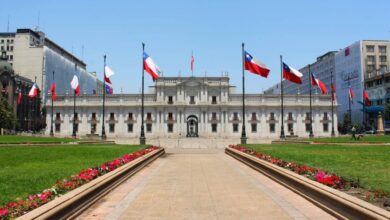Chile: The TPP-11 will be signed
On March 8th, the signing of the Integral and Progressive Treaty of Trans-Pacific Partnership has been scheduled

Of the original 12 countries that subscribed to the process in 2016, only the United States withdrew.
The American decision did not stop the process. After its announced departure, in 2017 in Viña del Mar, Chile, a meeting was held that marked the beginning of TPP-11. Its signature was planned at the APEC (Asia-Pacific Economic Cooperation Forum) summit in Da Nang, Vietnam, but the Canadian government delayed the process.
This week, in Santiago, Chile, the signing of the Integral and Progressive Treaty of Trans-Pacific Partnership-CPTPP is scheduled to give way to the TPP-11, which must be ratified by the respective parliaments.
Which are the countries that will sign the agreement? Australia, Brunei, Canada, Chile, Japan, Malaysia, Mexico, New Zealand, Peru, Singapore, and Vietnam will sign the agreement representing 13% of world GDP with 463 million inhabitants and an average GDP per capita of 22,000 dollars, according to data from the IMF.
What will be the effects? The agreement seeks, mainly, to reduce trade barriers, establish a common framework on intellectual property issues and establish standards in labor law, corporate social responsibility, environment, gender policies, SMEs, minority groups, and indigenous peoples.
Some countries had their own objections. Canada, for example, wants to protect its culture by imposing restrictions on foreign films. Vietnam wants to be exempt in labor law matters; Malaysia and Brunei seek preferential treatment in the coal industry.
For some countries in Latin America, the agreement is of special relevance, since it would be reached with countries that are among the 25 highest per capita GDP in the world, according to the IMF, these countries are Canada, Japan, Australia, New Zealand and Brunei.
One of the least expected consequences was the withdrawal of one of the countries; however, US Treasury Secretary Steven Mnuchin declared that President Donald Trump is thinking of rejoining the process if conditions improve. The strategy would first focus on bilateral negotiations and then think together. In addition, President Trump himself said at the World Economic Forum in Davos, Switzerland that he could return to being part of the agreement.
The signing of the agreement will be one of the last official acts of Michelle Bachelet in charge of the presidency of Chile before giving place to President Sebastián Piñera.
Chile was one of the countries that most fought for the validity of this agreement and is the one who took the leadership in a moment of crisis when everything seemed to perish, organizing the first meeting. According to the government, the country will benefit especially in terms of food.
The TPP seems to contradict the analysis that there is a tendency towards isolation and protectionism at the international level. This mega agreement connects the countries that surround Asia-Pacific, including Latin America, which supports the idea that the center of gravity of the international economy will move from the Atlantic to the Pacific, even without the membership of the United States.
Latin American Post | Jonathan Carné
Translated from "Se firma el TPP-11"





